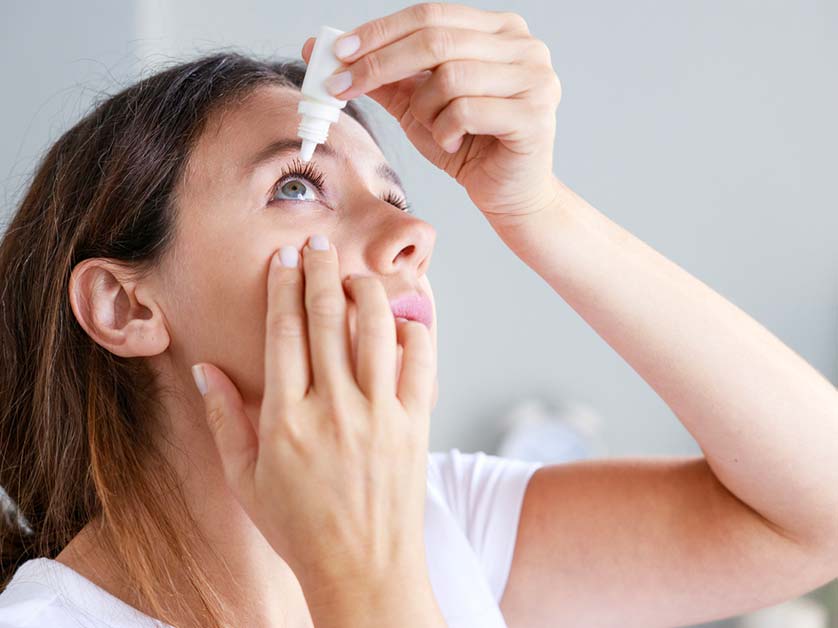Are your eyes often gritty, stinging or uncomfortably dry? Millions of people face the same issue each day. Dry eye is more than just an annoyance; it can potentially impact your vision and overall quality of life. In this post, Spectrum Eye Care shares more information about dry eye syndrome and what you can do to reduce discomfort.
What Is Dry Eye?
A dry eye is a condition where your eyes don’t produce enough tears or the tears evaporate too quickly. The tears, or tear film, are crucial to maintaining the health and comfort of your eyes. Without sufficient lubrication, your eyes can become irritated, causing discomfort and potentially impairing vision.
Causes of Dry Eye
Environmental conditions play a significant role in causing dry eyes. Exposure to dry or windy weather, high altitudes, smoke, dust, and air conditioning can evaporate tears quickly, leaving the eyes dry and irritated. Additionally, spending extended periods in front of digital screens or in environments with low humidity, such as heated or air-conditioned spaces, can exacerbate dryness. Your local optometrist can provide more insight into the potential causes during an eye exam.
Furthermore, certain lifestyle habits can contribute to dry eyes. Not blinking frequently enough, especially when focusing on screens or reading for long periods, can disrupt the natural lubrication of the eyes. Moreover, inadequate hydration, smoking, and excessive caffeine or alcohol consumption can affect tear production and quality, worsening dry eye symptoms.
Several medical conditions can cause or exacerbate dry eyes. Conditions like blepharitis (eyelid inflammation), meibomian gland dysfunction (MGD), Sjögren’s syndrome, rheumatoid arthritis and diabetes can interfere with the production or composition of tears, leading to dryness. Hormonal changes, particularly in women during menopause or pregnancy, can also contribute to dry eye symptoms.
Symptoms of Dry Eye
Common symptoms of dry eye include:
-
Stinging or burning sensation
-
Redness
-
Itching
-
Blurred vision
-
Sensitivity to light
-
Foreign body sensation
-
Excessive tearing
-
Difficulty wearing contact lenses
-
Eye fatigue
-
Mucus discharge
-
Worsening discomfort as the day progresses
-
Difficulty driving at night
Consulting an optometrist is vital for managing these symptoms effectively.
Diagnosis of Dry Eye
Diagnosing dry eye requires a thorough eye examination by experienced eye care professionals. We take your symptoms and medical history into account and carry out a few tests to measure the quality and quantity of your tears.
Treatment Options for Dry Eye
Treating dry eyes typically involves addressing the underlying cause and managing symptoms to improve eye comfort and function. This may include using over-the-counter or prescription artificial tear eye drops, implementing lifestyle modifications like blinking exercises and proper hydration, managing contributing medical conditions, and adjusting medications.
Regular eye exams are vital in maintaining good eye health and early detection of conditions like dry eye. You can prevent them from escalating by catching and treating these issues early. Spectrum Eye Care offers comprehensive eye exams to help ensure the health of your eyes. We also have expertise in LASIK eye surgery. Contact us at (704) 817-4600 or complete our online form to schedule an appointment.

